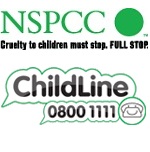 The NSPCC has urged people to talk to children about being 'net smart' and called for age appropriate lessons on internet safety to be held in all schools from primary age.
The NSPCC has urged people to talk to children about being 'net smart' and called for age appropriate lessons on internet safety to be held in all schools from primary age.
On 4 February the charity issued a warning that the latest research, coupled with calls to ChildLine and focus groups with young people, now show beyond doubt that one of the major child protection issues today is abuse via the internet and mobile phones.
ChildLine carried out 3,745 counselling sessions last year about the issue, with most callers aged between 12 and 15. A further 250 contacts were from children who actually said they were being 'groomed' online. And there was a sharp increase in contacts about exposure to online pornography, with 641 contacts representing a 70% increase for boys, with some callers as young as 11 years old.
While the best schools are already providing lessons on these issues, the NSPCC believes it is no longer a topic that can be left to chance and it's something parents struggle to keep up with.
The NSPCC is warning that:
• A new generation of social media apps has opened up a Pandora's Box of potential danger.
• So-called 'sexting' and hard-core pornography are now the norm for many teenagers, with focus groups describing it as so common it's 'mundane'.
• Some young people are being targeted and blackmailed or coerced into sending indecent images to strangers or peers.
• Cyber bullying is a growing and insidious problem where young people can't escape from the intimidation and humiliation of it.
Claire Lilley, safer technology lead at the NSPCC, said: "The internet and mobile phones are now part and parcel of young people's everyday lives. They are the first generation of people who have never known a world without them. The benefits are huge, both socially and educationally, but so too are the dangers.
"Young people tell us they are experiencing all sorts of new forms of abuse on a scale never before seen. It's now clear that we are facing an e-safety timebomb with this being one of the biggest child protection issues of our time.
"We cannot put the genie back in the bottle, but we can talk to our children about this issue. Parents, schools, technology companies, and young people themselves can all play their part. The theme of this year's Safer Internet Day is online rights and responsibilities; we need to help young people find the balance between the two."
Peter Davies is chief executive of the Child Exploitation and Online Protection Centre. He said: "Online abuse is abuse and the effects can be devastating for young people, and in some instances life threatening.
"Situations can rapidly feel out of their control and on a daily basis at the centre we hear from very scared and concerned children who are desperate for help. With smart phones and free apps, young people can easily communicate with strangers online and share images on the move.
"Parents and carers can make a vital difference to whether or not a child becomes a victim. There are dedicated educational resources and safety tools for parents and children at our Thinkuknow website."